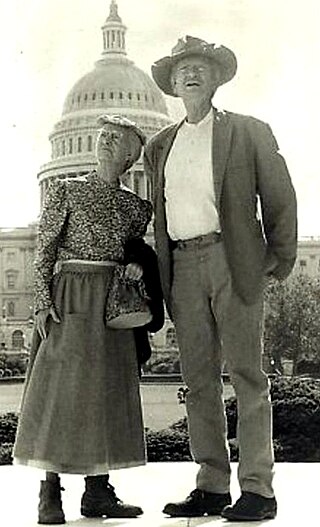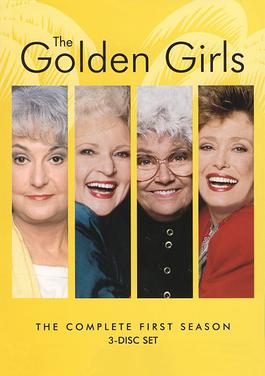
Rowan & Martin's Laugh-In is an American sketch comedy television program which ran for 140 episodes from January 22, 1968, to March 12, 1973, on the NBC television network, hosted by comedians Dan Rowan and Dick Martin. It originally aired as a one-time special on September 9, 1967, and was such a success that it was brought back as a series, replacing The Man from U.N.C.L.E. on Mondays at 8 pm (ET). It quickly became the most popular television show in the United States.

M*A*S*H is an American war comedy drama television series that aired on CBS from September 17, 1972, to February 28, 1983. It was developed by Larry Gelbart as the first original spin-off series adapted from the 1970 feature film M*A*S*H, which, in turn, was based on Richard Hooker's 1968 novel MASH: A Novel About Three Army Doctors. The series, which was produced with 20th Century Fox Television for CBS, follows a team of doctors and support staff stationed at the "4077th Mobile Army Surgical Hospital" in Uijeongbu, South Korea, during the Korean War (1950–53).

Clerow "Flip" Wilson Jr. was an American comedian and actor best known for his television appearances during the late 1960s and 1970s. From 1970 to 1974, Wilson hosted his own weekly variety series The Flip Wilson Show, and introduced viewers to his recurring character Geraldine. The series earned Wilson a Golden Globe and two Emmy Awards, and it was the second highest-rated show on network television for a time.

The Daytime Emmy Awards, or Daytime Emmys, are part of the extensive range of Emmy Awards for artistic and technical merit for the American television industry. Bestowed by the New York-based National Academy of Television Arts and Sciences (NATAS), the Daytime Emmys are presented in recognition of excellence in American daytime television programming. The first ceremony was held in 1974, expanding what was originally a prime time-themed Emmy Award. Ceremonies generally are held in May or June.

The Sonny & Cher Comedy Hour is an American variety show that starred American pop singers Sonny Bono and Cher, who were married to each other at the time. The show ran on CBS in the United States, and premiered in August 1971. The show was cancelled in May 1974, due to the couple's divorce, but the duo reunited in 1976 for the similarly formatted The Sonny & Cher Show, which ran for two seasons, ending August 29, 1977.

Madelyn Pugh, sometimes credited as Madelyn Pugh Davis, Madelyn Davis, or Madelyn Martin, was a television writer who became known in the 1950s for her work on the I Love Lucy television series.

The "rural purge" of American television networks was a series of cancellations in the early 1970s of still-popular rural-themed shows with demographically skewed audiences, the majority of which occurred at the end of the 1970–71 television season. In addition to rural-themed shows such as Mayberry R.F.D., The Beverly Hillbillies, Petticoat Junction, and Green Acres, the cancellations ended several highly rated variety shows that had been on CBS since the beginning of television broadcasting. CBS saw a dramatic change in direction with the shift, moving away from shows with rural themes and toward more appeal to urban and suburban audiences.
The Julie Andrews Hour was a television variety series starring Julie Andrews that was produced by ATV and distributed by ITC Entertainment. It aired on the ABC network in the United States. Known as the Julie Andrews Show in the UK and aired on the ITV network.
The Primetime Emmy Award for Outstanding Comedy Series is an annual award given to the best television comedy series of the year. From 1960 to 1964, this category was combined with the Comedy Specials category so that both type of programs competed for the same award during those years. The award goes to the producers of the series.
This is a list of winners and nominees of the Primetime Emmy Award for Outstanding Drama Series since its institution in 1951. The award goes to the producers of the series. The award is often cited as one of the "main awards" at the Emmys ceremonies.
Charles Ira Fox is an American composer for film and television. His compositions include the sunshine pop musical backgrounds which accompanied every episode of the 1970s ABC-TV show Love, American Style; the theme song for the late 1970s ABC series The Love Boat; and the dramatic theme music to ABC's Wide World of Sports and the original Monday Night Football; as well as the Grammy-winning hit song "Killing Me Softly with His Song", written in collaboration with Fox's longtime writing partner, Norman Gimbel.
Fielder Cook was an American television and film director, producer, and writer whose 1971 television film The Homecoming: A Christmas Story spawned the series The Waltons.
Bob Weiskopf was an American screenwriter and producer for television. He has credits for I Love Lucy which he and his writing partner Bob Schiller joined in the fifth season. They also wrote for The Lucy-Desi Comedy Hour, The Lucy Show, Maude, All in the Family, Archie Bunker's Place, The Red Skelton Show, the short-lived Pete and Gladys, and Sanford.
Robert Achille Schiller was an American screenwriter. He worked extensively with fellow producer/screenwriter Bob Weiskopf on numerous television shows in the United States, including I Love Lucy (1955–1957) and All in the Family (1977–1979) on the CBS network. For the latter series, he received an Emmy Award in 1978 as one of the writers of the episode "Cousin Liz."

William Otto Harbach was an American television producer, director and author. He won four Emmy Awards and a Peabody Award Harbach also produced and directed special events, including eight ASCAP celebrations for renowned composers, lyricists and librettists. He was the son of American lyricist, librettist and ASCAP co-founder Otto Abels Harbach.

The first season of the American television comedy series The Golden Girls originally aired on NBC in the United States between September 14, 1985, and May 10, 1986. Created by television writer Susan Harris, the series was produced by Witt/Thomas/Harris Productions and ABC Studios It starred Bea Arthur, Rue McClanahan, Betty White, and Estelle Getty as the main characters Dorothy Zbornak, Blanche Devereaux, Rose Nylund, and Sophia Petrillo. The series revolves around the lives of four older women living together in a house in Miami.

Geraldine Jones is a fictional African American character and the most famous recurring persona of comedian Flip Wilson. Geraldine was played by Wilson in drag, as a sassy and liberated Southern woman who was coarsely flirty yet faithful to her (unseen) boyfriend "Killer". She was direct and confident and did not change her persona to suit anyone. Several catchphrases popularized by Geraldine entered U.S. popular culture, especially "When you're hot, you're hot; when you're not, you're not," "The Devil made me do it," and "What you see is what you get!"











